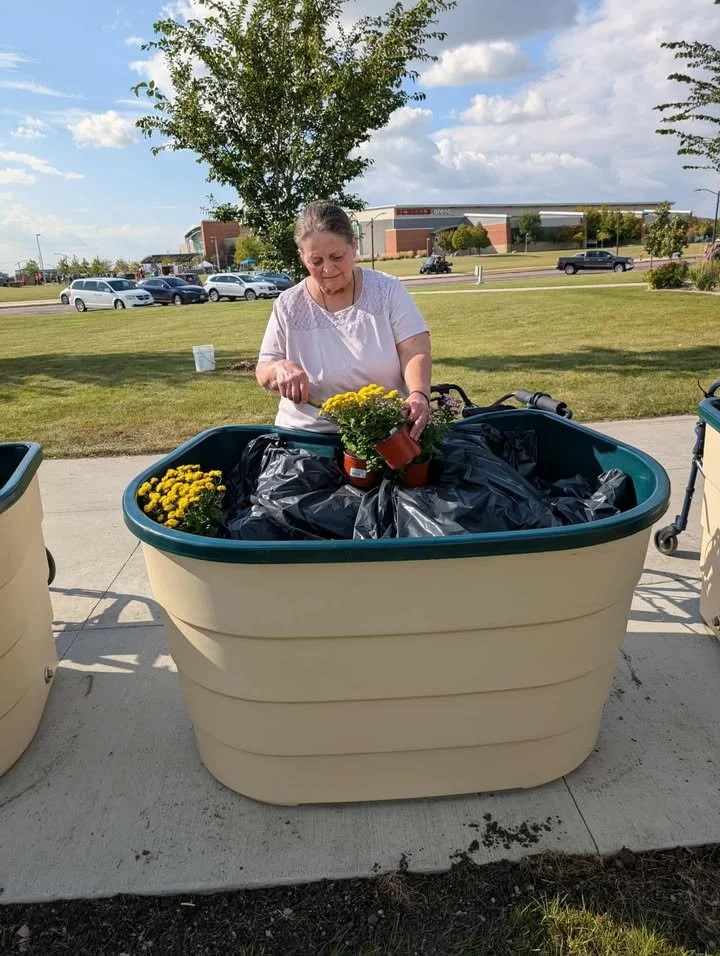See how The Garden of Healing is improving wellbeing in their community through Adaptive Gardening
The Power of Adaptive Gardening: Enhancing Social Spaces for People with Limited Mobility
Adaptive gardening has transformed the way communities design and enjoy public green spaces, making them more inclusive and engaging for everyone. Through thoughtful features such as raised beds, accessible pathways, and specialized tools, adaptive gardening allows individuals with limited mobility to participate fully in planting, nurturing, and maintaining gardens. These spaces not only enhance the beauty of our shared environments but also promote social interaction, cooperation, and a sense of belonging. By enabling people of all abilities to experience the joy and self-satisfaction of gardening, adaptive gardening turns public spaces into thriving, inclusive hubs of connection and creativity.
How Adaptive Gardening Promotes Inclusion and Connection in Public Spaces
Adaptive gardening promotes inclusion and connection in public spaces by removing physical and social barriers that often prevent people with limited mobility from participating in outdoor activities. Features like raised beds, wide and even pathways, and ergonomic tools ensure that gardening is accessible to everyone, allowing individuals of all abilities to contribute meaningfully. These shared green spaces encourage social interaction, as participants work together, exchange knowledge, and enjoy the results of their collective effort. Beyond fostering community bonds, adaptive gardening provides a sense of purpose and accomplishment, helping users feel valued and engaged. In this way, it transforms public spaces into inclusive hubs where beauty, activity, and social connection coexist.
Benefits of Adaptive Gardening for Individuals with Limited Mobility
Adaptive gardening offers numerous benefits, particularly for individuals with limited mobility. By incorporating raised beds, accessible pathways, and ergonomic tools, it makes gardening accessible to everyone, promoting gentle physical activity that supports flexibility and strength. Beyond the physical advantages, engaging with plants and nature provides mental health benefits, reducing stress and enhancing overall well-being. Adaptive gardening also fosters social interaction, encouraging collaboration and connection within the community, while giving participants a rewarding sense of achievement as they nurture and watch their plants grow. Ultimately, it creates inclusive, vibrant public spaces that bring people together and enrich the environment for all.



